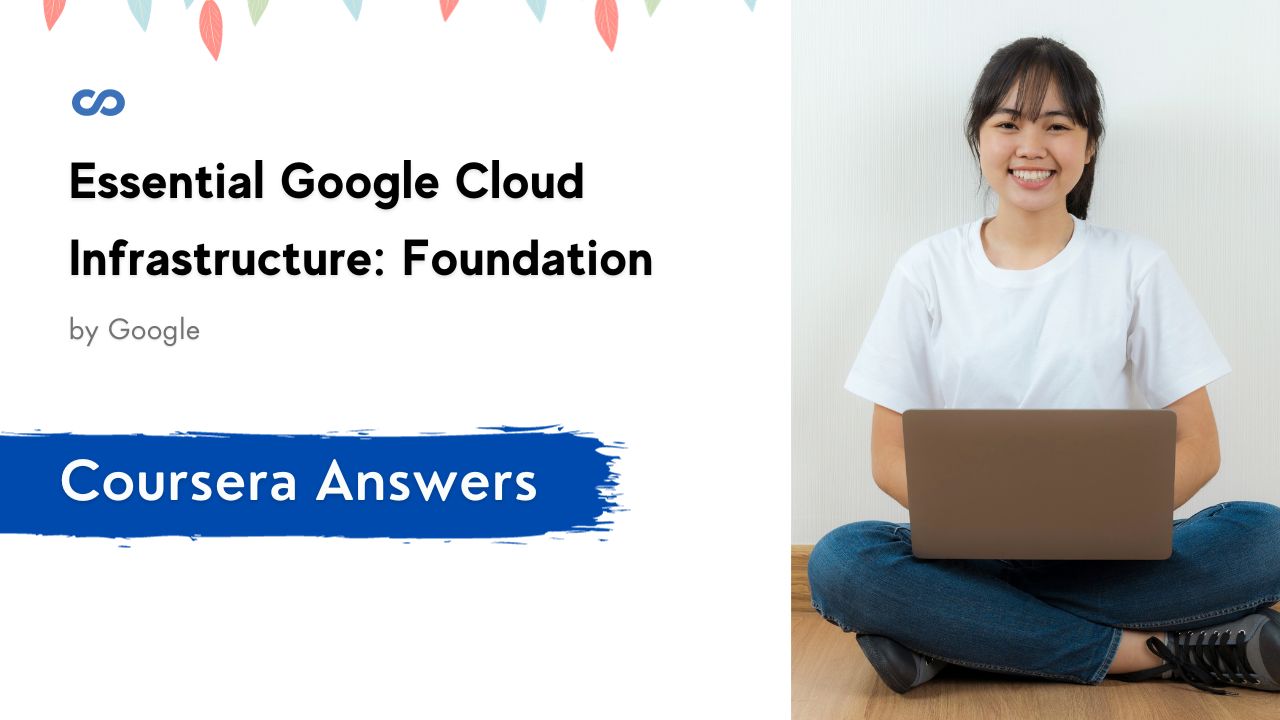Essential Google Cloud Infrastructure: Foundation Coursera Quiz Answers
In this article i am gone to share Coursera Course: Essential Google Cloud Infrastructure: Foundation Coursera Quiz Answers with you..
Enrol Link: Essential Google Cloud Infrastructure: Foundation
Essential Google Cloud Infrastructure: Foundation Coursera Quiz Answers
Module Quiz Answers
Question 1)
Which of the following does not allow you to interact with GCP?
- Cloud Shell
- GCP Console
- Cloud Explorer
- REST-based API
Question 2)
What is the difference between GCP Console and Cloud Shell?
- GCP Console is a command-line tool, while Cloud Shell is a graphical user interface
- Cloud Shell is a command-line tool, while GCP Console is a graphical user interface
- Cloud Shell is a locally installed tool, while GCP Console is a temporary virtual machine.
- There is no difference as these tools are 100% identical.
Module Quiz Answers
Question 1)
In GCP, what is the minimum number of IP addresses that a VM instance needs?
- One: Only an internal IP address
- Two: One internal and one external IP address
- Three: One internal, one external and one alias IP address
Question 2)
What are the three types of networks offered in the Google Cloud Platform?
- Zonal, regional, and global
- Gigabit network, 10 gigabit network, and 100 gigabit network
- Default network, auto network, and custom network.
- IPv4 unicast network, IPv4 multicast network, IPv6 network
Question 3)
What is one benefit of applying firewall rules by tag rather than by address?
- Tags help organizations track firewall billing.
- Tags in network traffic help with network sniffing.
- Tags on firewall rules control which ephemeral IP addresses VMs will receive.
- When a VM is created with a matching tag, the firewall rules apply irrespective of the IP address it is assigned.
Module Quiz Answers
Question 1)
Which statement is true of Virtual Machine Instances in Google Compute Engine?
- Compute Engine uses VMware to create Virtual Machine Instances.
- In Compute Engine, a VM is a networked service that simulates the features of a computer.
- All Compute Engine VMs are single tenancy and do not share CPU hardware.
- A VM in Compute Engine always maps to a single hardware computer in a rack.
Question 2)
Which statement is true of Virtual Machine Instances in Google Compute Engine?
- Compute Engine uses VMware to create Virtual Machine Instances.
- In Compute Engine, a VM is a networked service that simulates the features of a computer.
- All Compute Engine VMs are single tenancy and do not share CPU hardware.
- A VM in Compute Engine always maps to a single hardware computer in a rack.
Question 3)
Which statement is true of persistent disks?
- Once created, a persistent disk cannot be resized.
- Persistent disks are encrypted by default.
- Persistent disks are physical hardware devices connected directly to VMs.
- Persistent disks are always HDDs (magnetic spinning disks).

